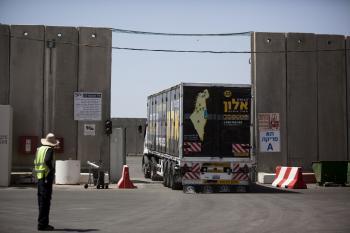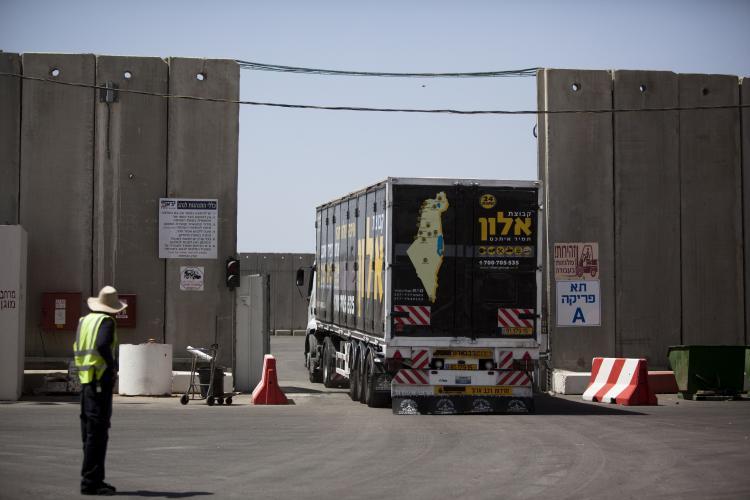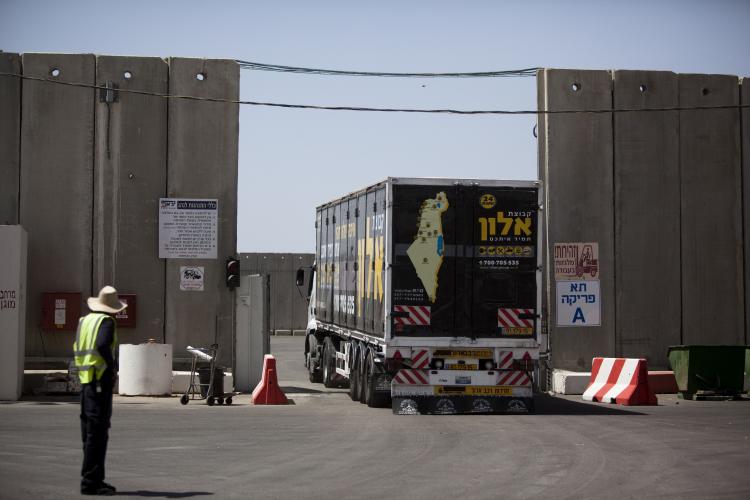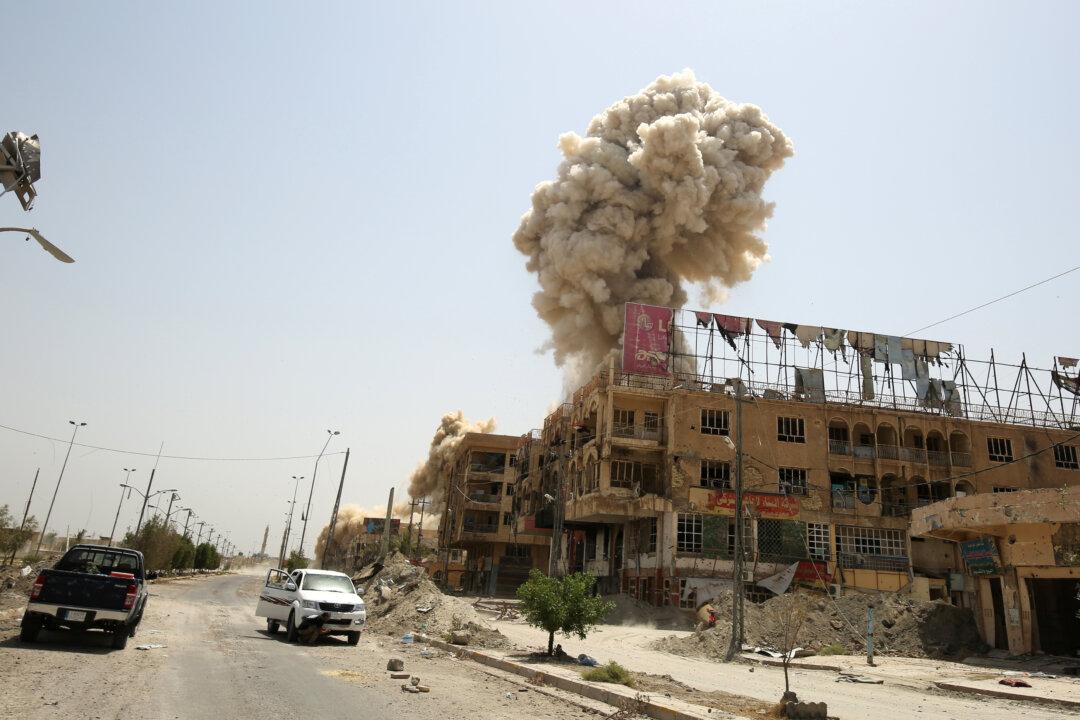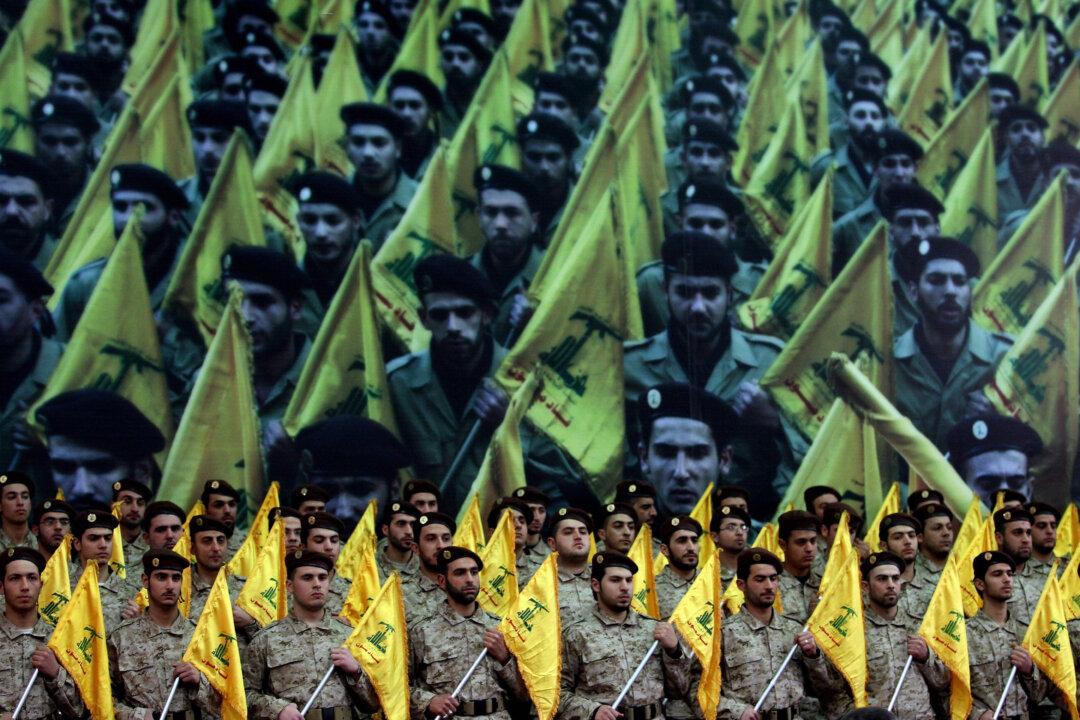JERUSALEM—Answering to intense international pressure to ease restrictions on Gaza, Israel gave further details of its plan to ease restrictions on the region after a Security Cabinet Meeting on Sunday.
“Our government’s policy towards Gaza is clear,” Prime Minister Netanyahu was quoted as saying on Sunday on his website. “Israel seeks to keep out of Gaza weapons and war-supporting material that Hamas uses to prepare and carry out terror and rocket attacks against Israel and its civilians.”
Netanyahu made the comments during a meeting with Quartet Envoy Tony Blair.
How the changes will be implemented have not been decided.
Items prohibited from entering Gaza will include weapons and war material, including “problematic dual-use items,” according to Netanyahu’s office. Anything not on the prohibited list will be allowed into Gaza.
Restrictions on dual-use construction materials will also be eased for Palestinian authority-authorized projects like schools, health facilities, water, and sanitation. The projects must be carried out under international supervision. Projects like a U.N. housing development will be able to get more material, and the Israeli government has promised to accelerate approval for similar projects.
Operations at land crossings now in use will be expanded to process more goods. After expanding capacity at existing crossings, more crossings will be opened.
People trying to enter and exit Gaza for humanitarian and medical reasons, including staff of international aid organizations, will have a streamlined permit process. Israel is also promising to eventually find more ways to facilitate movement of people, if conditions in the area improve.
Goods bound for Gaza through the Port of Ashdod, one of Israel’s main ports, will continue to be handled by Israel in what they call “expeditious inspection and delivery of goods.”
Despite the easing of restrictions, the government is emphasizing that it still considers Hamas a terrorist organization, and vowed the Israeli military will continue working against it.
The White House applauded Israel’s move, saying in a statement on Sunday that the U.S. believes it should “significantly improve conditions for Palestinians in Gaza, while preventing the entry of weapons.”
“There is no need for unnecessary confrontations, and we call on all parties to act responsibly in meeting the needs of the people of Gaza,” the statement continued.
Obama will discuss Israel’s new policy and additional steps with Netanyahu during his visit to Washington on July 6, said the White House.
The Israeli government is also seizing the moment to dovetail the easing of restrictions with a call for the international community to help release kidnapped Israeli soldier Gilad Shalit, who has been held captive for almost four years in Gaza.
“The international community should join Israel in strongly condemning Hamas for holding him captive,” said Netanyahu in his comments during his meeting with Tony Blair.
“We will redouble our efforts to secure his freedom,” Blair added. President Obama also demanded Shalit’s immediate release.
“Our government’s policy towards Gaza is clear,” Prime Minister Netanyahu was quoted as saying on Sunday on his website. “Israel seeks to keep out of Gaza weapons and war-supporting material that Hamas uses to prepare and carry out terror and rocket attacks against Israel and its civilians.”
Netanyahu made the comments during a meeting with Quartet Envoy Tony Blair.
How the changes will be implemented have not been decided.
Items prohibited from entering Gaza will include weapons and war material, including “problematic dual-use items,” according to Netanyahu’s office. Anything not on the prohibited list will be allowed into Gaza.
Restrictions on dual-use construction materials will also be eased for Palestinian authority-authorized projects like schools, health facilities, water, and sanitation. The projects must be carried out under international supervision. Projects like a U.N. housing development will be able to get more material, and the Israeli government has promised to accelerate approval for similar projects.
Operations at land crossings now in use will be expanded to process more goods. After expanding capacity at existing crossings, more crossings will be opened.
People trying to enter and exit Gaza for humanitarian and medical reasons, including staff of international aid organizations, will have a streamlined permit process. Israel is also promising to eventually find more ways to facilitate movement of people, if conditions in the area improve.
Goods bound for Gaza through the Port of Ashdod, one of Israel’s main ports, will continue to be handled by Israel in what they call “expeditious inspection and delivery of goods.”
Despite the easing of restrictions, the government is emphasizing that it still considers Hamas a terrorist organization, and vowed the Israeli military will continue working against it.
The White House applauded Israel’s move, saying in a statement on Sunday that the U.S. believes it should “significantly improve conditions for Palestinians in Gaza, while preventing the entry of weapons.”
“There is no need for unnecessary confrontations, and we call on all parties to act responsibly in meeting the needs of the people of Gaza,” the statement continued.
Obama will discuss Israel’s new policy and additional steps with Netanyahu during his visit to Washington on July 6, said the White House.
The Israeli government is also seizing the moment to dovetail the easing of restrictions with a call for the international community to help release kidnapped Israeli soldier Gilad Shalit, who has been held captive for almost four years in Gaza.
“The international community should join Israel in strongly condemning Hamas for holding him captive,” said Netanyahu in his comments during his meeting with Tony Blair.
“We will redouble our efforts to secure his freedom,” Blair added. President Obama also demanded Shalit’s immediate release.
